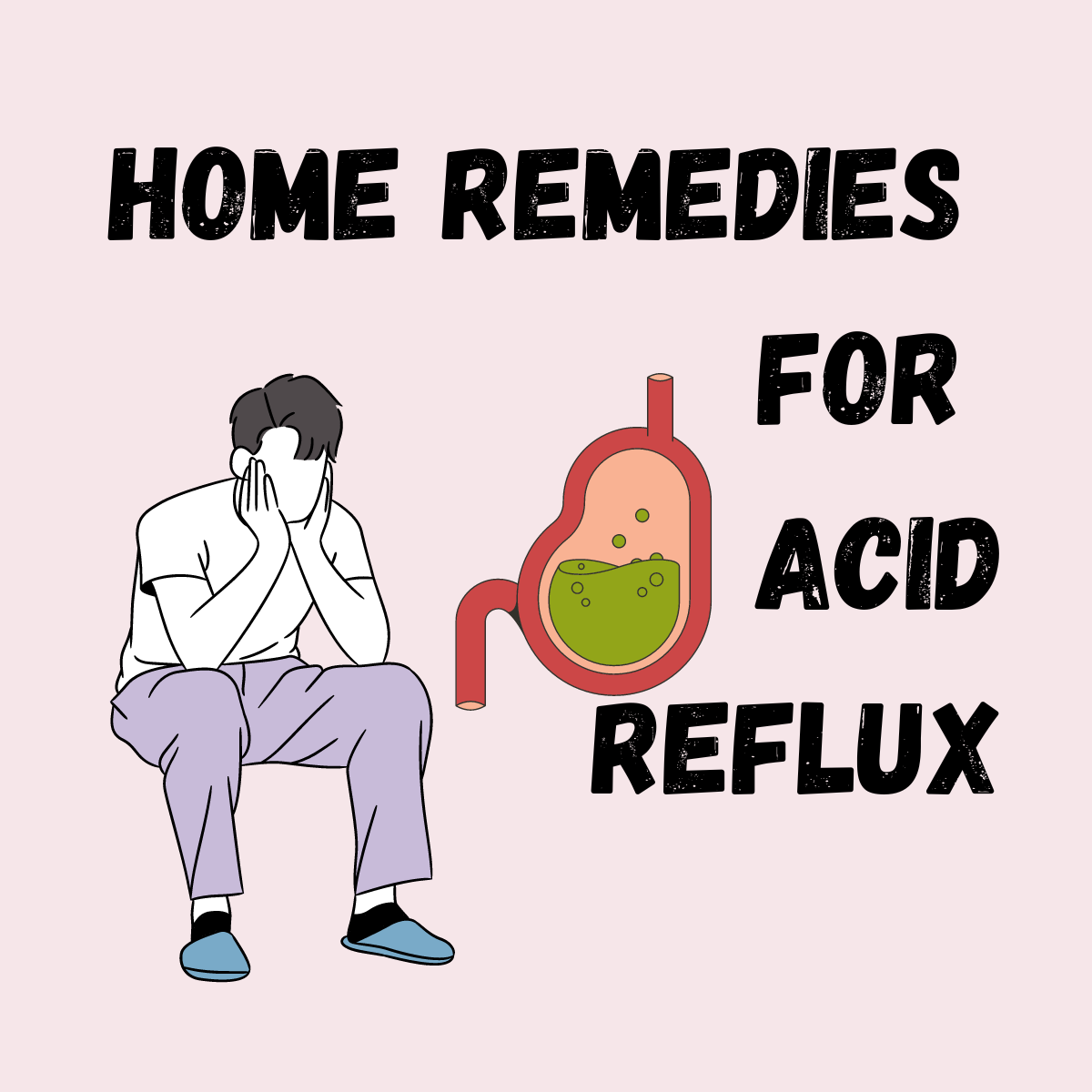14 Effective Remedies for Acid Reflux (GERD)/Heartburns
In this article, I will show you some effective remedies for acid reflux, also known as Heartburn. Heartburns are characterized by a painful burning sensation in the chest and is a common discomfort experienced by many.
Gastroesophageal reflux disease (GERD), the condition underlying heartburn, affects a significant portion of the adult population in the United States and other parts of the world. GERD occurs when stomach acid flows back into the oesophagus, leading to the uncomfortable sensation of heartburn. While medications are often used to manage acid reflux, lifestyle changes can also play a crucial role in alleviating symptoms and enhancing overall well-being.
Here are 14 natural remedies for acid reflux, supported by scientific research, to help you minimize acid reflux and heartburn discomfort.
Sleep on Your Left Side
Studies suggest that sleeping on your left side may reduce acid reflux symptoms during the night. This position may decrease acid exposure in the oesophagus by up to 71%, potentially due to its effect on the lower oesophagal sphincter.
Elevate the Head of Your Bed

Raising the head of your bed has been shown to decrease nighttime acid reflux symptoms. By elevating your upper body, gravity helps prevent stomach acid from flowing back into the oesophagus, improving sleep quality.
Eat Dinner Earlier
Consuming dinner several hours before bedtime can help prevent acid reflux symptoms at night. Additionally, opting for a lighter dinner and avoiding heavy meals close to bedtime can reduce the risk of reflux.
Ensure you eat at least 3-4 hours before you sleep. This will ensure that the meal has moved from your stomach into the intestines, and therefore, there is no chance of food content refluxing into your oesophagus, causing heartburn.
Choose Cooked Onions Over Raw
Raw onions are known triggers for heartburn and acid reflux due to their difficulty in digestion. Opting for cooked onions can help alleviate symptoms by reducing irritation to the oesophagal lining.
Eat Smaller, Frequent Meals
Consuming smaller, more frequent meals throughout the day can help prevent excessive pressure on the lower oesophagal sphincter, reducing the likelihood of acid reflux after meals.
Maintain a Moderate Weight
Excess belly fat can contribute to GERD by increasing the pressure on the abdomen, potentially causing the lower oesophagal sphincter to malfunction. This condition, known as hiatal hernia, is a common cause of GERD. Maintaining a moderate weight through healthy lifestyle habits can help alleviate symptoms and reduce the risk of acid reflux.
Also read: Home remedies for dry scalp
Follow a Low low-carb diet:
Research suggests that reducing carb intake may help alleviate symptoms of GERD. High-carb diets can contribute to bacterial overgrowth and increased abdominal pressure, both of which are linked to acid reflux.
Limit Alcohol Intake:
Excessive alcohol consumption can exacerbate acid reflux symptoms by increasing stomach acid production and relaxing the lower oesophagal sphincter. Limiting alcohol intake can help alleviate symptoms and improve overall digestive health.
Moderate Coffee Consumption:
While coffee consumption has been associated with acid reflux, findings are inconclusive. However, limiting coffee intake, especially for those prone to reflux, may help reduce symptoms and improve digestive comfort.
Reduce Carbonated Beverage Consumption:
Regular consumption of carbonated beverages has been linked to an increased risk of reflux due to the carbon dioxide content, which can lead to increased burping and acid reflux. Limiting the intake of these beverages can help manage symptoms.
Moderate Citrus Juice Intake:
Citrus juices, such as orange and grapefruit juice, are common triggers for heartburn due to their acidic nature. While they may not directly cause acid reflux, consuming them in moderation can help prevent exacerbation of symptoms.
Avoid Mint Products:
Peppermint and spearmint, found in various products, including teas and chewing gum, can relax the lower oesophagal sphincter and worsen reflux symptoms. Avoiding mint products may help alleviate discomfort associated with acid reflux.
Limit High-Fat Foods: Remedies for acid reflux.
Fried and fatty foods can trigger GERD symptoms by stimulating bile salt release and relaxing the lower oesophagal sphincter. Limiting the intake of high-fat foods like fried foods, bacon, and sausage can help manage acid reflux.
Quit Smoking:
Smoking can exacerbate acid reflux symptoms by reducing saliva production and relaxing the lower oesophagal sphincter. Quitting smoking can significantly improve acid reflux symptoms and overall digestive health.
When is it necessary to visit a hospital
If in spite of all the remedies I have provided above, you still experience acid reflux, it would be ideal to visit your doctor so that more test can be done and medical therapy advised. You can also visit your doctor if you start experiencing the following symptoms;
- Start vomiting blood.
- Start developing coarse voice.
- Start experiencing difficulty in breathing.
- Start developing chest pains and fever.
- If your child develops poor feeding habits.
- If you develop difficulty in swallowing food.
When you visit your doctor, they may do some tests to determine what ails you and help in management of acid reflux. These tests can include and are not limited to;
- An OGD.
- A barium swallow x-ray.
- A full hemogram.
- An esophageal pH test.
Medications Your Doctor May Recommend as Remedies for Acid Reflux
Some of the medications your doctor may recommend may include Proton Pump Inhibitors over the counter anti-acid medications, which are excellent remedies for acid reflux.
Conclusion: My Final Thoughts on home remedies for acid reflux
Heartburn and acid reflux can significantly impact quality of life, but simple lifestyle changes can help alleviate symptoms and improve overall well-being. By following these 14 strategies for acid reflux, individuals can effectively manage acid reflux and enjoy greater digestive comfort. As always, consulting with a healthcare professional for personalized advice and treatment recommendations is essential.

